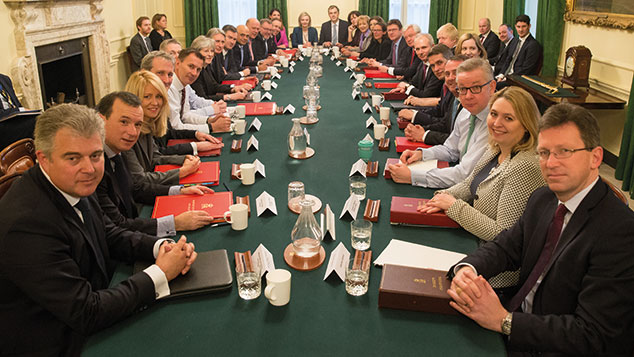
The prime minister is perilously close to losing her job. But the party is too split to agree on a successor. Matthew Partridge reports.
“The vultures” are “hovering” around Theresa May “in ever-decreasing circles”, says Matthew Norman on The Independent. Having wasted a partial recovery in her fortunes “with that slightly cack-handed reshuffle”, she now faces reports that she could be ousted after local elections in May if she doesn’t turn things around, while backbenchers on both wings of the party appear increasingly restive. Around 40 Tory MPs have reportedly submitted letters of no-confidence in Mrs May, just short of the number required to trigger a leadership contest, says The Daily Telegraph’s Steven Swinford.
The argument that the status quo is better than the uncertainty of a leadership election “is losing its purchase” among Conservative MPs, counters Rafael Behr in The Guardian. Indeed, the “current outbreak of regicidal fever” is “the effect of pent-up frustration at things undone”.
While Brexiteers “are annoyed that May won’t punish a chancellor who brazenly steers towards cosy alignment with the EU”, moderates “wish she would stand up to the backbench hard nuts”. Both sides “worry that the government has nothing to say about the NHS or schools” and “feel naked on the doorstep trying to explain what the government is for”.
May is “never going to be Britain’s greatest prime minister”, says Ross Clark in the Daily Express. Indeed, “her delay in calling last year’s general election followed by the lacklustre campaign that cost her party its majority showed up her faults: excessive caution combined with indecision and a lack of emotional connection with the electorate”. Nevertheless, she has “stuck resolutely to the policy she laid out clearly in her Lancaster House speech a year ago: negotiating a Brexit involving a free-trade deal with the EU, excluding membership of the single market and customs union”.
That’s why when it comes to Brexit, at least, removing May “would achieve nothing at best”, says Janan Ganesh in the Financial Times. “If Britain were led by a chess grandmaster who moonlighted as a Nobel-winning game theorist, it would still face the same choices as Mrs May, most of which she has settled in the Leavers’ favour”. Overall, “the anger at Mrs May is redirected anger at Britain’s diplomatic mismatch with the EU” and personalises “the advantage held by a near 450 million-strong union in bilateral talks with a nation of 65 million”.
A leadership contest at this stage “would send a confusing message to Brussels – and most likely lead to more unrest over the referendum result”, adds Katy Balls on The Spectator’s website. The broader problem, meanwhile, is that while most MPs agree “that May is not up to the job… they don’t agree on who [should] replace her”. Any contest now would be protracted, “unpredictable and bruising”, just at a time when the party needs to prepare for crucial trade negotiations.
Given the deep splits in the party, between right and left and Remainers and Leavers, “the closest thing to a competent compromise candidate with a chance of avoiding civil war” would be William Hague, reckons Matthew Norman. The trouble is he’s “been there and done that, and doesn’t seem to want a second T-shirt in place of the ermine robe”.